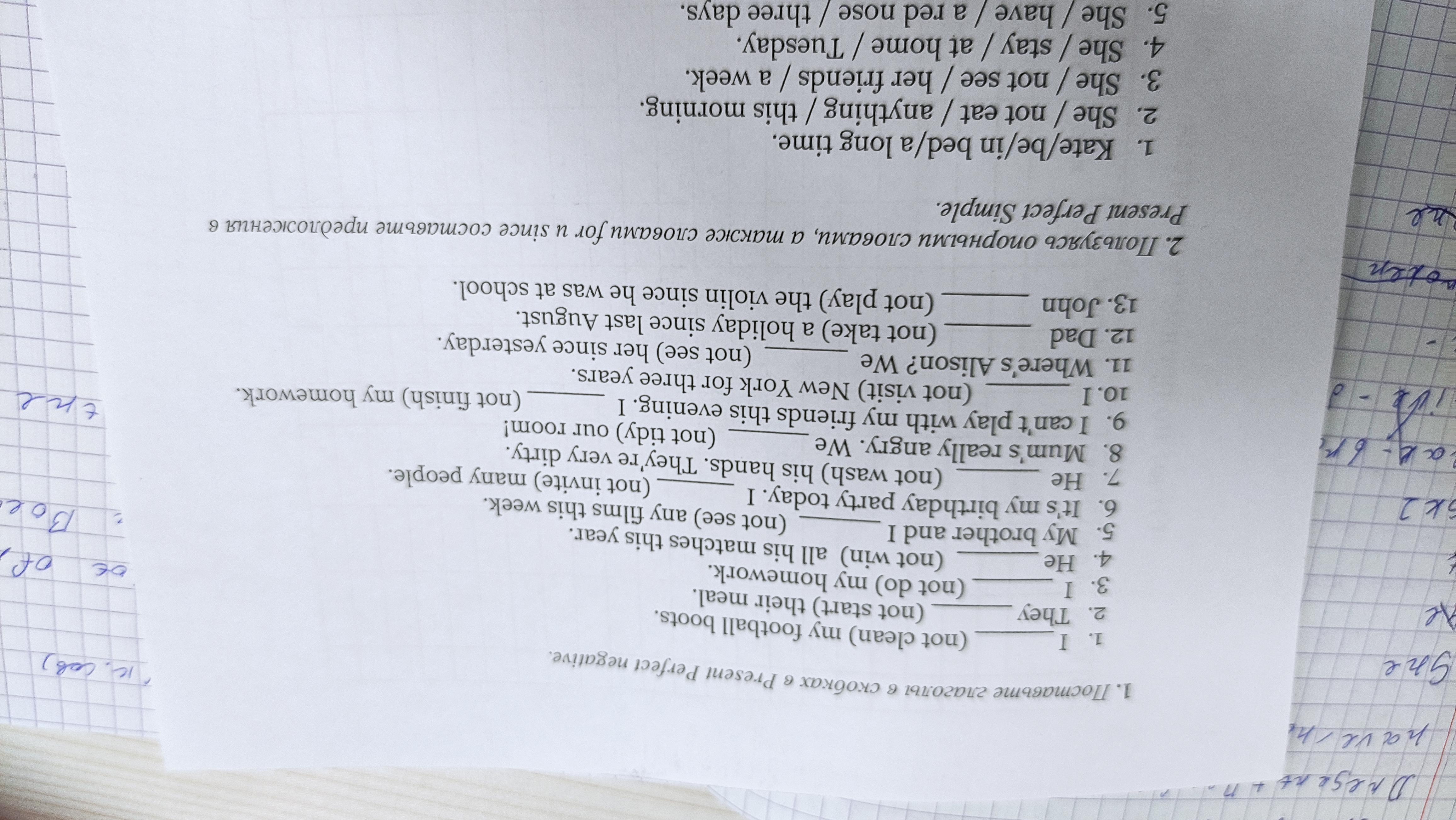Предмет: Английский язык,
автор: sauleshapat
Помоги пожалуйста, срочно 1 и второе задание
Приложения:

Ответы
Автор ответа:
0
упр.1
1)haven’t cleaned
2)haven’t started
3)haven’t done
4)hasn’t won
5) haven’t seen
6) haven’t invited
7)hasn’t washed
8)haven’t tidied
9)haven’t finished
10) haven’t visited
11)hasn’t taken
12)hasn’t played
упр. 2
1. Kate have been being in bed for a long time.
2.She hasn’t been eating anything since this morning
3.She has been seeing her friends for a week
4.She has been staying at home since Tuesday
5. She has been having a red nose for three days
ФУХ пока писала, рука чуть не отпала, можно за старание лучший ответ, 5 звёзд?
1)haven’t cleaned
2)haven’t started
3)haven’t done
4)hasn’t won
5) haven’t seen
6) haven’t invited
7)hasn’t washed
8)haven’t tidied
9)haven’t finished
10) haven’t visited
11)hasn’t taken
12)hasn’t played
упр. 2
1. Kate have been being in bed for a long time.
2.She hasn’t been eating anything since this morning
3.She has been seeing her friends for a week
4.She has been staying at home since Tuesday
5. She has been having a red nose for three days
ФУХ пока писала, рука чуть не отпала, можно за старание лучший ответ, 5 звёзд?
ElviPro:
что писать? я имела ввиду, что там просто написано так составить, а ты не совсем так составила. Если бы кто-то переписал было бы полностью неправильное задание(((
:)
первое правильно, я второй из-за не внимательности неправильно сделала
прост уже 9 лет учу англ))))
да я и про второе)))бывает))
зачем ты просишь решение? если ты учишь 9 лет и можешь сама сделать? я тоже давно учу, около 7 лет
я и не просила, я только написала ответ
это не я просила решать
я не смотрела кто автор вопроса, думала ты, поэтому так и спросила, уже посмотрела
ничего))))
Автор ответа:
0
Ответ:
№1.
1)haven't cleaned
2)haven't started
3)haven't done
4)hasn't won
5)haven't seen
6)haven't invited
7)hasn't washed
8)haven't tidied
9)haven't finished
10)haven't visited
11)haven't seen
12)hasn't taken
13)hasn't played
№2
1)Kate has been in the bed for a long time.
2)She hasn't eaten anything since this morning.
3)She hasn't seen her friends for a week.
4)She has stayed at home since Tuesday.
5)She has had a red nose for three days.
Похожие вопросы
Предмет: Русский язык,
автор: Katt77
Предмет: Английский язык,
автор: санфурик
Предмет: Русский язык,
автор: NIGAbrothers
Предмет: Математика,
автор: penguinAustin
Предмет: Литература,
автор: ramazmuradov01